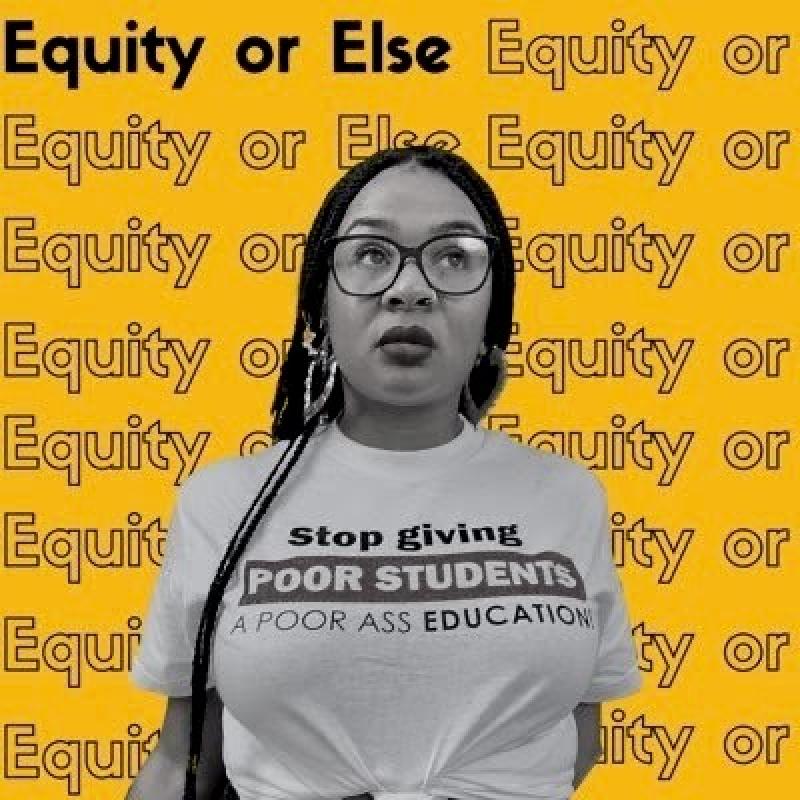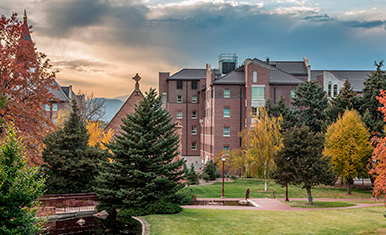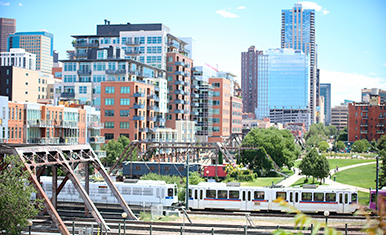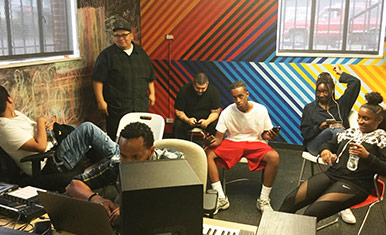#EducationEquityOrElse: The Path to Healing from Racism in Education Systems and the COVID Response
By Hasira Ashemu & Dr. Johnny Ramirez
BIPOC Students (Black, Indigenous, People of Color) have long endured structural and institutionalized racism in the public education systems across Colorado and the country, and the response to COVID-19 has exacerbated that. As we begin the process of rebuilding learning environments, we need more, not less, public resources flowing into schools serving students of color to provide equitable opportunities to learn and thrive. We cannot fall back on our old, outdated, and discriminatory ways of doing things, where privileged white children’s needs are met first, and students of color are an afterthought. We need true education equity, or else we’ll never make good on the right to a free, high quality education for all children!
The Righteous Rage Institute for Social Justice is rallying families and communities from across Colorado together around the demand for #EducationEquityorElse. Nearly 2,000 people tuned in on April 30th for a historical conversation between Education Justice leaders from across the state. The powerhouse panel that we led included Dr. Antwan Jefferson (from the Human Development and Family Relations program, UCD), Shirley Romeo Otero (Teacher-Activist and Founder of Land Rights Council), Dr. Cheryl Matias (IRISE Visiting Scholar and School of Education & Human Development, UCD), and Robert Donovan (co-Founder of Pueblo Education Coalition). Sister Shirley Otero powerfully reminded us that in this moment relationships and family are primary. We centered that intention, using this platform and moment to deepen our relationships with each other, so we can emerge in this moment as a powerful multi-racial, multi-generational state-wide coalition of people ready to stand up to the status quo of inequity in education.
In a state that has been ground zero over the last 15 years for the so-called education reform movement, we have seen mass displacement of Black and Brown students and teachers from their neighborhood public schools. The failed policies of those education reform efforts have been based on a flawed ideology that racial gaps in education outcomes are based on business model inefficiencies in schools, rather than structural racism. Communities across the state have been successfully fighting back against this corporate takeover of public schools, winning local elections and campaigns that give the power back to the people. This virtual event reflected a new, major step forward for the education justice movement in Colorado, with local leaders coming together intentionally to sew the threads of local struggles and triumphs together into a call for a state-wide commitment to true equity. As each panelist gave voice to the inequities students in their own communities and oftentimes their own children faced, they each reminded all of us of the power we as individuals and as a collective hold to create change for our children and our communities.
From the many fiery, mic-drop moments during the virtual event, emerged a clear blue print for advancing #EducationEquityorElse in this moment:
- Families and educators should be focused on mental wellness first and foremost, and using this unique opportunity to build a sense of self, culture, and family history. Many of our panelists reminded us that we are still operating within a colonized model of education, and historically education systems have been designed intentionally in a way to pushout low income People of Color and graduate only a few. The U.S. educational system is designed to replicate and maintain the racial hierarchies and social inequalities within society. And still today, we’ve been trying to “force fit children of color” into school systems that never wanted them there. Or worse, having our babies be exposed to schooling practices, as with the Indian boarding schools, that were “designed to brutally and violently erase native identity, kill our souls, and squelch our rage with false history,” as Dr. Matias pointed out. During this global pandemic it’s time for BIPOC (Black Indigenous People of Color) self-love and cultural awareness Bootcamp!
While our children are at home and parents are expected to teach them, it’s an opportunity to strengthen relationships with your children, and take time to teach them your family history so they get an education in who they are and where they came from. “Teaching the truth in history, of our racial and ethnic history, empowers and gives students that foundation to deal with the issues that will not go away in our lifetime,” as Shirley Otero highlighted. “Cultural identity is a powerful tool, and this civic, political, and cultural education doesn’t take place in school, despite all the studies that show cultural education builds students’ connection to and love of school while benefiting academic performance,” as Robert Donovan pointed towards.
We now have an opportunity to model this learning in our homes, and demand culturally relevant curriculum and learning as students reacclimate to school environments in the fall. If we are serious about education justice and addressing racial inequity, our education system leaders must recognize how pervasive whiteness inoculates minds and harms students of color, stifling their success. We need system wide trainings and approaches to build the cultural competence and cultural centering in school curriculum, and to address the white supremacist attitudes that drive the belief that some students of color can’t be taught, can’t succeed. Or as was the case in Pueblo, the white supremacist attitude that it’s okay to address white students needs first, and then figure out how to support the Latino/a/x students after.
- We must demand that data broken down by race and ethnicity be collected and reported, especially in regards to food access, technology access, and inadequate preparation of classroom teachers.We need to look at the root causes in racial disparities in access, including analysis of how racism, discrimination, and bigotry have created those inequities, so we are acknowledging the racial history in our communities, in the state, and in the country upon which these inequities are grounded. By doing this, we can create a shared, affirmed vision for justice in all areas where we see the inequities and injustices, rather than Band-Aid, shallow solutions that fail to address the real gaps in equitable access.
As Dr. Jefferson pointed out, now that this crisis is considered a crisis, the things people have been long asking for are now a priority. If we go back to business as usual, we will have a consistent failure to serve black, brown, indigenous children who have been and will remain in crisis, even though there are clearly resources that could have been made available to meet their needs this whole time. We now know that our education system has had the resources all along to purchase 9,000 Chromebooks for students in Denver that haven’t had access to technology in the home long before this crisis. We have a responsibility to capture, document, store, and tell our stories, and demand the resources we need to address inequities in resources and opportunities that our students are facing, and not accept “lack of resources” as an excuse for what is actually an unwillingness to prioritize children of color. If we don’t use this moment to resource our needs, the system will go back to maintaining the status quo of ignoring and sweeping under the rug the true inequities our children are facing.
- We must demand investment at this moment in state-wide Community Schools and the extra supports students will inevitably need to reacclimate and get back on track; while demanding divestment from the systems and tools that are counter-productive to supporting children and families.As Robert Donovan in Pueblo explained, it is time that we have a network of community schools around the entire state of Colorado that are in tune to the unique needs of students and families they are servicing. Community Schools are open all day, every day and for everybody, where the unique needs of students and families are met by in-depth and ongoing needs and assets assessments that dig into the root cause of problems students are facing in and outside of classrooms. This model looks at the whole child, their home life, access to food, the mental health and well-being of the students before they come into school, and makes sure they come in with a state of mind where they are ready to learn. Community Schools also shift decision-making power, ensuring that families have a seat at the table and their voices are heard, rather than a closed, hierarchical approach to decision-making.
We need to pressure our legislatures for funding to support districts and schools that want to move forward with this model, especially as students reacclimate to schools in the fall, so we are addressing the trauma that students are bringing back to the classroom. This model will ensure we are not overlooking anybody, definitively giving families a voice inside their schools, and making sure their culture is represented in schools and in curriculum.
Similarly, panelists also called for:
- Divestment from School Resource Officers, so those dollars can be better spent on in-school mental health clinicians to deal with the depression, anxiety, and trauma students faced before and during this pandemic
- 2-3 year (at least) freeze on expensive, counter-productive standardized testing and teacher evaluations, so those dollars can be better utilized towards case management and support for students and training for teachers
- Delay of changes to graduation requirements in the state are scheduled to take effect for class 2021, so students in high school are not at a disadvantage
- Reducing, moderating, and changing entry requirements for students applying to colleges across the state because of the current moment that will disadvantage students
This virtual meeting was just the beginning of our collective work to ensure these measures are implemented in communities across the state. Join the Education Justice Movement by following #EducationEquityorElse campaign on Facebook, and stay tuned for additional programming that will seek to bring us together in building shared strategies and approaches to transforming our relationships to schools and to each other in ways that are decolonizing and humanizing.
If you missed it, you can find the full recording of the event on the #EducationEquityorElse Facebook page, hosted by Righteous Rage.
Hasira “Soul” Ashemu, Executive Director of Breaking Our Chains, IRISE Community Scholar
Johnny Ramirez, Ph.D., IRISE Postdoctoral Fellow



